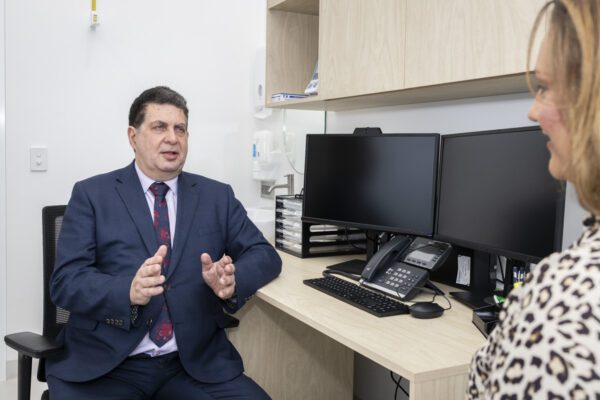Too exhausted to do a decent job or even feel motivated enough to want to do a good job?
Are you too tired to work, and asking why am I tired all the time?
You are not the only one feeling too tired to hold everything together. The events of 2021 have taken us all to a whole new level of exhaustion and burnout.
Australia is in the midst of a mental health crisis, and exhaustion, tiredness, and stress are contributing significantly to our levels of anxiety, depression, and burnout.
The Banyans Health and Wellness has recorded a 140% increase in enquiries over the 12 months to November 2021 for help with burnout and chronic stress.

The world is tired, stressed and exhausted. A combination of financial stress, employment pressures, home schooling, and strained relationships has left us running on empty.
“People who are not making a significant or conscious effort to put aside time to look after themselves are just completely worn out by the last couple of years,” says Nadine Missenden, registered psychologist at The Banyans Health and Wellness.
“Pandemic fatigue, coupled with the financial and relationship stresses of the last couple of years, has left most people running on empty professionally, personally, mentally, and emotionally. No wonder people are asking us ‘Why am I so tired?”
We are all feeling tired all the time.
But the significant social and financial impact of COVID-19 and changes to mobile technology now means that burnout is not just work related – the shift towards working from home means our personal lives and workplaces are entwined in a way never seen before. The line between work and home has blurred so significantly that it’s sometimes difficult to pinpoint the actual source of stress.
“A large number of the people who are contacting The Banyans Health and Wellness – regardless of their presenting concerns – are reporting they feel worn out, low in energy, and are finding it hard to look forward to tomorrow,” says Nadine. “They report that they are feeling tired all the time.”
Why am I always tired?
The profound disruption that the pandemic has caused to our lives has changed our activities and schedules, our leisure time, our work arrangements, and every relationship we have. Everyone is charting unfamiliar territory with no mentors to show us the way, and it’s exhausting.

2020 and 2021 have been exhausting.
Related blog: The cost of burnout inaction
Financial insecurity and job losses have driven many Australians into financial distress.
At the end of 2021, the world is collectively feeling restless, irritable, and tired.
We are lacking enthusiasm. We are fatigued and forgetful.
Burnout and chronic stress enquiries skyrocketed by 140% from 2020 to 2021.
The perfect storm that COVID-19 created has left us completely drained. Fatigue has reached a whole new level. According to The Guardian, we’re all so exhausted that we need another word to describe how exhausted we feel.
Exhausted? You are not alone
There are numerous studies, reports, and surveys showing women are suffering extended exhaustion, a result of the extra unpaid work of caring over the last two years on top of their normal jobs.
In May 2021, ABC News reported that there was a nine-month waiting list for psychologists in Queensland.
The Australian Government and the National Mental Health Commission has acknowledged that many of us are running close to empty emotionally and mentally, and everyone is experiencing it differently.

We are feeling tired all the time, and are running close to empty emotionally and mentally.
In July, National Mental Health Commission CEO Christine Morgan encouraged all Australians to prioritise their mental health, connect, and rejuvenate to overcome pandemic fatigue.
“Find your way to replenish, and help others find their way as well,” Ms Morgan said.
Feeling tired all the time? Get help
The Banyans Residence offers a 7- to 14-day Rest and Refresh package that allows guests the time and environment they need to regroup, plan, and move forward into 2022 in a positive way.
Healthy meals, personalised training, and therapy programs, including yoga and mindfulness, are combined with fresh air, peaceful views, and plenty of rest to replenish your reserves ahead of the new year.

The Banyans Health and Wellness offers 7-to-14 day packages that allows you the time and environment to rest, regroup, plan, and move forward.
Psychological support is also available to help strengthen your mental resolve as we enter the new year and helps provide strategies that will mean you are better equipped to manage unprecedented challenges that are thrown your way.
Importantly, The Banyans Health and Wellness is open throughout the Christmas and New Year period.
The Rest and Refresh program is about ensuring you are in the best physical, emotional, and mental position to tackle 2022 with confidence, strength, and poise.
The ripple effects of making time to prioritise your own wellbeing will be felt by your employees, family, and friends, so you are helping them start 2022 in a better position too.
The Banyans Health and Wellness is available 24/7 to help you begin your journey towards a life good mental health. You can call anytime on +61 1300 226 926 or submit an online enquiry to begin learning how we can help you rediscover the fullness of life.





